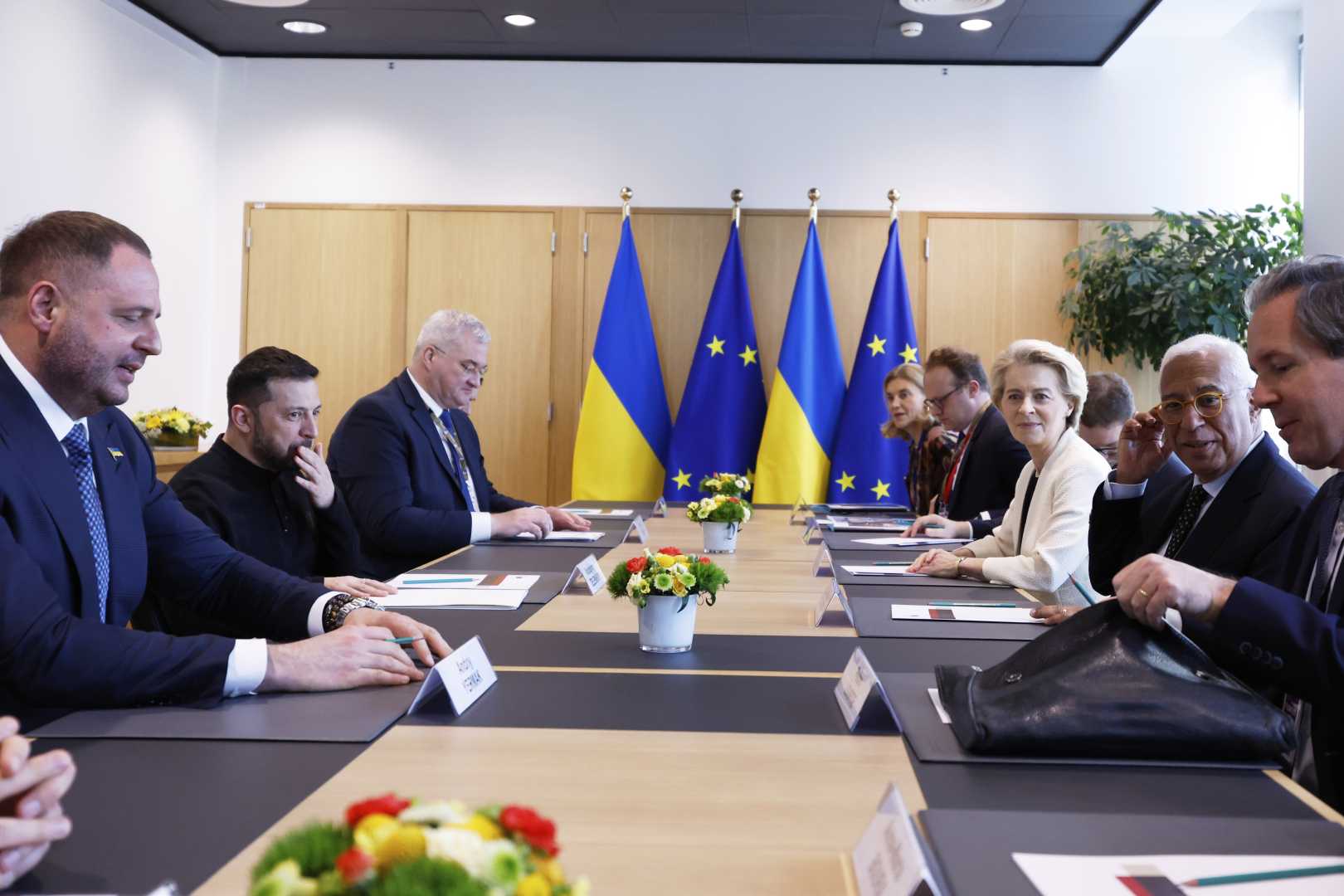World
EU Approves Major Defense Package; Zelenskyy Seeks Support

BRUSSELS, Belgium — European Union leaders approved a significant defense spending package on March 6, 2025, underscoring the bloc’s commitment to bolster military readiness amid rising tensions from Russia. The $160 billion package aims to enhance military capabilities across the 27-member bloc, with Ukrainian President Volodymyr Zelenskyy present at the summit, highlighting Ukraine’s ongoing struggle against Russian aggression.
The package includes loans and amended debt restrictions to enable EU countries to increase military spending effectively. European Council President António Costa emphasized that the joint defense initiative aims to secure ‘all EU land, air, and maritime borders,’ particularly focusing on threats from Russia and Belarus.
During the summit, Costa stated, ‘We decided to invest in priority areas’ such as air defense systems, drones, and artificial intelligence. This comprehensive defense strategy arises as European leaders respond to calls from the United States for increased European self-reliance in defense matters.
‘A stronger European defense also provides deterrence for Ukraine,’ Costa said. ‘Ukraine’s security is at the core of Europe’s security.’ Zelenskyy, in turn, expressed his gratitude for unwavering European support as he navigates a challenging geopolitical landscape.
‘Ukraine is ready to work 24/7 with our partners in the United States and Europe for peace,’ Zelenskyy declared. Next week, he plans to meet with American officials in Saudi Arabia to discuss potential frameworks for a peace deal and a ceasefire in the ongoing conflict.
European Commission President Ursula von der Leyen highlighted the seriousness of the situation, declaring, ‘Europe faces a clear and present danger,’ emphasizing the urgency for Europe to defend itself and support Ukraine. She demanded immediate action to bolster military capacities within the EU.
Former Dutch Defense Minister Kajsa Ollongren remarked that European leaders have recognized the necessity of a robust defense approach, insisting, ‘This might be the moment where we are on our own’ and underscoring the importance of ensuring that Ukraine does not lose the conflict. ‘These are difficult choices. And you have to explain them to people, but it has to be done.’
The summit also saw support from key EU officials pushing for a ‘war economy’ initiative to ensure readiness against potential threats. European Parliament President Roberta Metsola reflected a growing consensus among lawmakers, stating, ‘It is about damn time,’ advocating for the EU’s capacity to stand on its own two feet in defense matters.
While most EU leaders support the initiative, Hungary‘s Prime Minister Viktor Orbán and Slovakia‘s Prime Minister Robert Fico expressed reservations about significantly enabling military assistance to Ukraine. However, the package benefits domestic defense systems, a point that may influence their stance.
This summit and the consequential defense package arrive at a pivotal moment in EU security, as the region adapts to shifting dynamics in support for Ukraine and broader geopolitical challenges.












